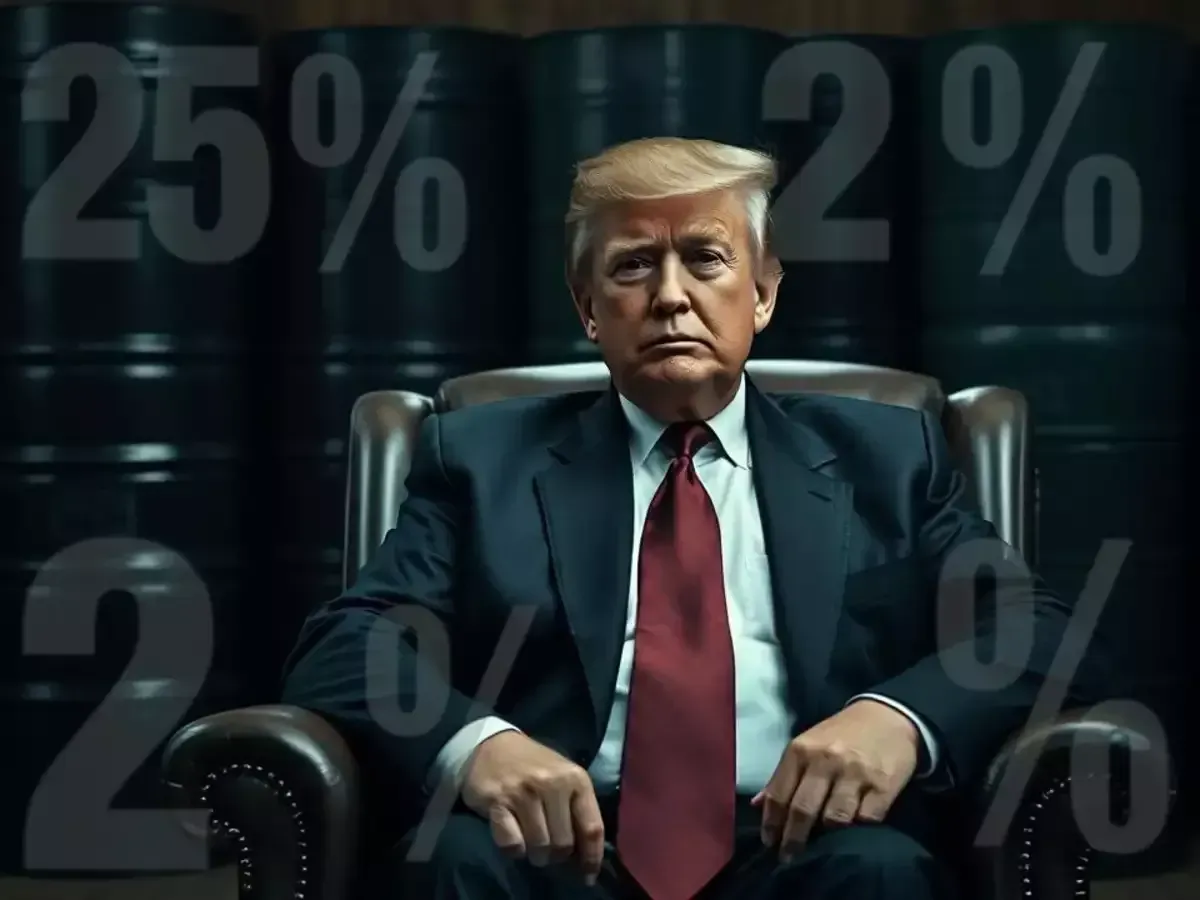Trump's 'Liberation Day' Tariffs: A Global Trade War Unfolds

Introduction
April 2, 2025, marks what former U.S. President Donald Trump calls “Liberation Day,” a pivotal moment in his aggressive trade policy. The White House has confirmed that the newly announced tariffs will take effect immediately, shaking the foundations of global trade. While Trump has not finalized all details, key industries and economies worldwide brace for impact.
This new wave of tariffs represents a significant escalation of protectionist policies, which could lead to economic disruptions, trade retaliations, and market volatility. From India to Europe, and China to Australia, global leaders are responding with caution, skepticism, and, in some cases, countermeasures.
Trump’s Tariff Strategy: A Closer Look
The core of Trump’s trade war is “reciprocal tariffs,” a strategy aimed at imposing equivalent taxes on imports from countries that levy high duties on American goods. His administration argues that this move will level the playing field for U.S. businesses. However, critics warn that the approach could backfire, hurting American consumers and businesses while straining diplomatic relations.
Some key highlights of Trump’s tariff plan:
Target Sectors: Pharmaceuticals, dairy, textiles, steel, technology, and agriculture face the highest risk.
The “Dirty 15” Nations: Reports suggest that 15 countries, including China, India, Germany, and Mexico, are likely to be most affected.
Economic Risks: A trade war could stoke inflation, disrupt supply chains, and reduce global economic growth.
Political Ramifications: Trump’s move is seen as a political maneuver to strengthen his base ahead of the 2026 midterms.
How India and Other Economies Are Reacting
India’s Stand on the Tariffs
India has long been a significant player in global trade, with strong economic ties to the U.S. In response to Trump’s tariff push, India has already imposed 100% tariffs on certain U.S. goods as a countermeasure. The Indian government is exploring multiple strategies, including trade diversifications and negotiations with other partners, to mitigate potential economic damage.
Some key Indian industries that could be impacted include:
Pharmaceuticals: India’s generic drug exports to the U.S. could face increased costs.
Dairy and Agriculture: U.S. imports of Indian dairy and agricultural products may decline due to higher prices.
Textiles: India’s textile exports, a significant contributor to its economy, may be hit with higher tariffs.
Europe and China’s Countermeasures
European Union: European leaders have called Trump’s tariffs “unproductive and counterintuitive,” warning of a potential retaliatory response.
China: While Trump hinted at potential flexibility for China, Beijing has kept its stance firm, preparing to hit back with tariffs on U.S. imports like automobiles, soybeans, and semiconductors.
What This Means for Global Markets
Market reactions have been mixed, with uncertainty looming over Wall Street and global exchanges. Key takeaways from the financial world include:
Stock Market Fluctuations: The Dow Jones and S&P 500 opened mixed amid tariff uncertainties.
Investor Concerns: Major corporations in manufacturing, agriculture, and pharmaceuticals are preparing for increased costs.
Commodities at Risk: Oil, steel, and rare earth minerals are expected to see price hikes.
Conclusion: What Lies Ahead?
Trump’s tariff strategy, while aimed at strengthening U.S. industries, comes with significant risks. A full-fledged trade war could disrupt global supply chains, increase inflation, and trigger diplomatic conflicts. As countries weigh their responses, the world watches closely to see whether this move will boost the U.S. economy or backfire, leading to long-term consequences.
Key Questions to Watch:
Will Trump reconsider his stance under international pressure?
How will global leaders respond to the escalating trade war?
What impact will this have on American consumers and businesses?
As the dust settles on “Liberation Day,” the world braces for the next chapter in Trump’s trade war saga.
Press Release on Our All Websites for Powerful Online Presence
Get your brand featured with a world-class press release, published across all our high-authority websites — complete with powerful do-follow backlinks. Crafted to meet global press release standards, our service ensures maximum credibility, visibility, and SEO impact. Special pricing and exclusive offers are available for a limited time. Contact us today at sunil@justbaazaar.com to elevate your brand’s presence."
Created with ©systeme.io









